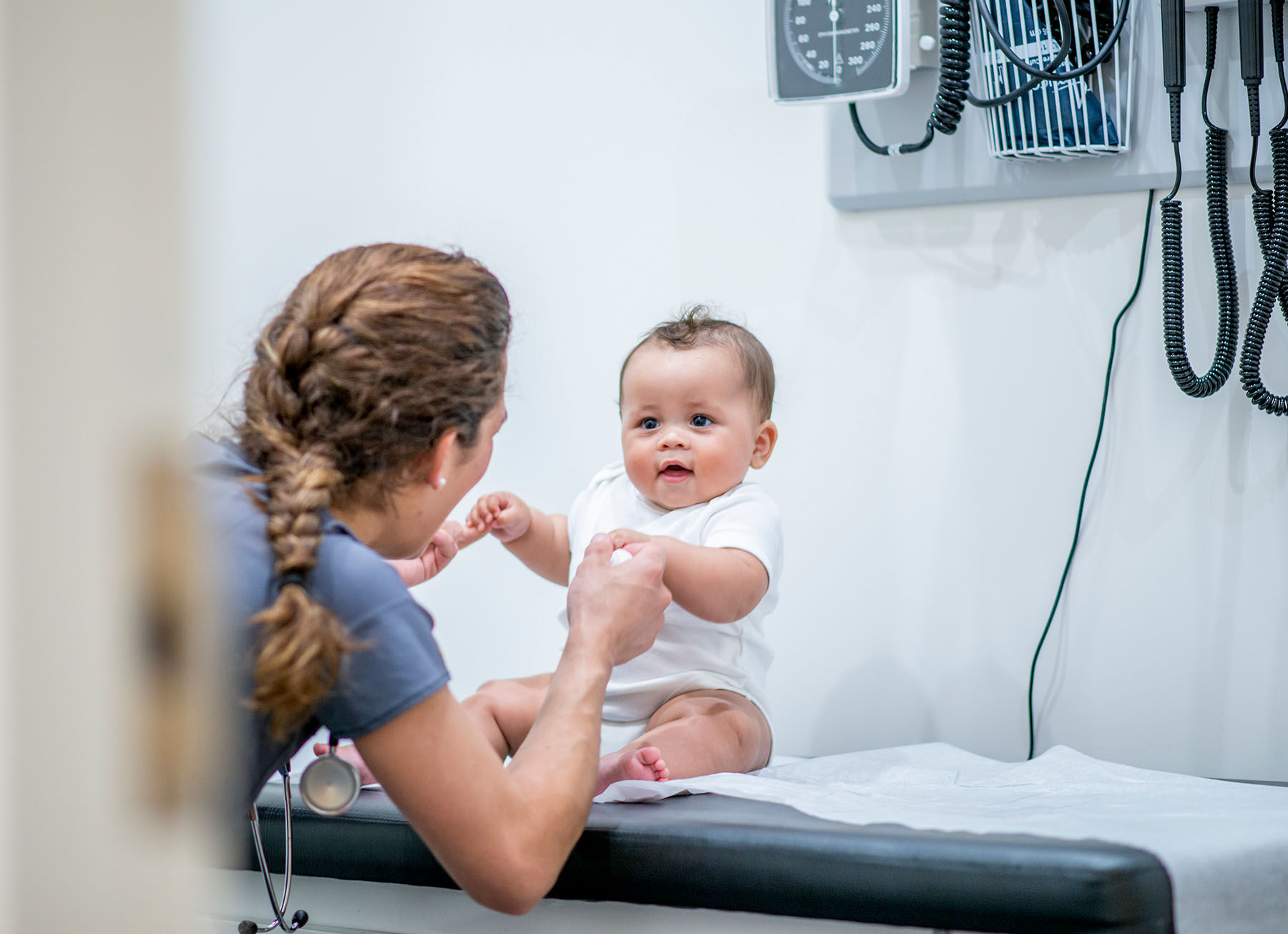What Screenings Does Your Newborn Baby Need?

Congratulations on your new arrival! You and your pediatrician share the same goal — to support your child’s health throughout their development. The first step is to have your newborn screened for diseases and conditions that show no symptoms early in life. Having this information from the start empowers you and your pediatrician to focus on prevention and the right medical care to help your child reach their full potential.
“The newborn screening program, which started more than 50 years ago and has been growing since then, is one of the most effective public health programs in the United States to prevent or treat certain conditions,” says Pankaj Agrawal, M.B.B.S., M.D., MM.Sc., Chief of Neonatology at the University of Miami Miller School of Medicine.
What can newborn screening tests detect?
All newborns in this country are screened for at least 35 serious medical conditions.
Most states also require additional screenings based on local public health priorities.
“The newborn screenings in the state of Florida currently include more than 55 conditions, along with critical congenital heart disease and hearing screens,” says Karen Young, M.D., M.S., FAHA, professor of Pediatrics at the Miller School. “All of these tests are offered by physicians at the University of Miami Health System.”
Things to know about newborn screening tests:
- Babies affected by these conditions may have no symptoms at birth.
- Symptoms may start to show soon after birth.
- If left undiagnosed and untreated, these conditions may cause devastating consequences.
- Once a diagnosis is made using these tests, there is often a treatment/prevention strategy available.
These health conditions include a large number of metabolic disorders, endocrine disorders, and blood disorders, among many others.
Newborn screening tests include:
- dried blood spot screen
- hearing screening
- bilirubin screening
- critical congenital heart defect screening
When should your baby get tested?
The multiple tests associated with the dried blood spot screen should be performed on every child within 24 to 48 hours of life, with a quick turnaround of results.
“This screen is repeated for sick or preterm infants, as we will also collect a specimen at 28 days of life or prior to transfer, whichever comes first. Additional specimens may be requested if initial ones are unsatisfactory for testing,” Dr. Agrawal says.
The first visit with your child’s pediatrician is often within the first few days of their life.
It is critical that you bring all hospital paperwork with you. “The newborn dried blood spot screen results may or may not be available at this time. If available, your pediatrician will review the results on the state website, repeat the screening if needed, or refer your child to a specialist,” says Dr. Young.
“If the screening report is not available at that time, no need to worry,” says Dr. Agrawal, “as the state ensures you will be contacted by the pediatrician in case of a positive finding and when further steps are needed.”
Dr. Young adds, “While some tests may be falsely positive but proven normal on a repeat test, it is essential that parents follow instructions in a timely manner.” If more testing is needed, your provider may recommend additional tests and may refer you to a specialist.
Your doctor has seen and heard it all.
During the first visit with your pediatrician, they will evaluate how you and your baby are doing at this early stage. You can discuss feeding, the number of diapers with urine and stool, jaundice, umbilical cord healing, circumcision healing, postpartum mental health and any safety concerns.
Visits with your pediatrician are opportunities for you and your parenting partner to ask questions about your baby’s health and development and your responsibilities as new childcare givers. Be open and honest, so you can get the medical guidance and reassurance you need to support your family’s wellness from day one.
Dana Kantrowitz is a contributing writer for UHealth’s news service.
Tags: Dr. Karen Young, Dr. Pankaj Agrawal, health care for babies, newborn diagnostic, screenings for new babies
